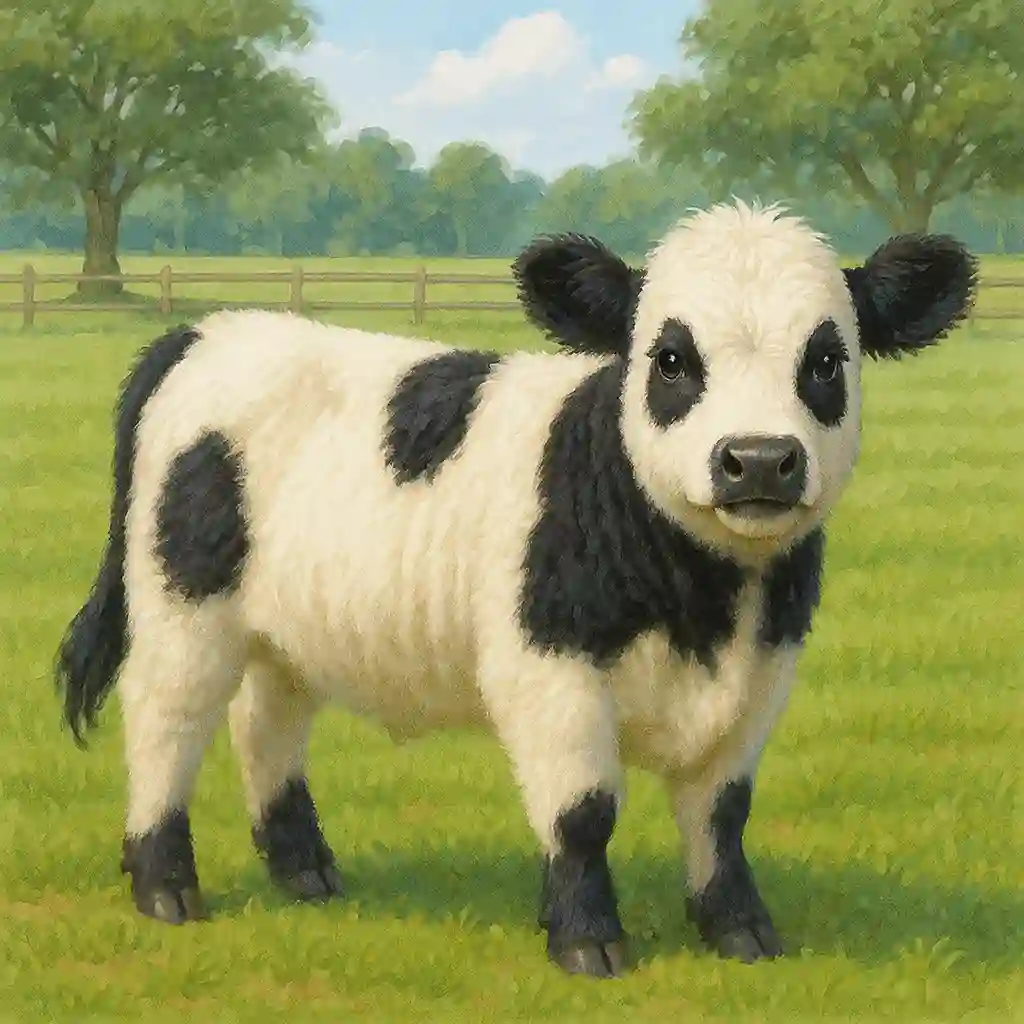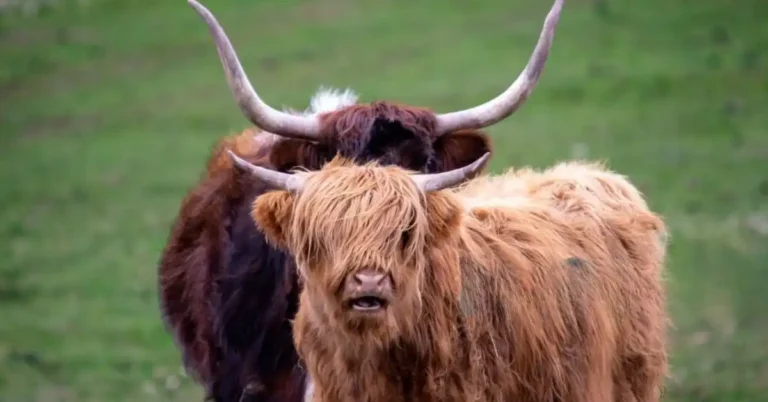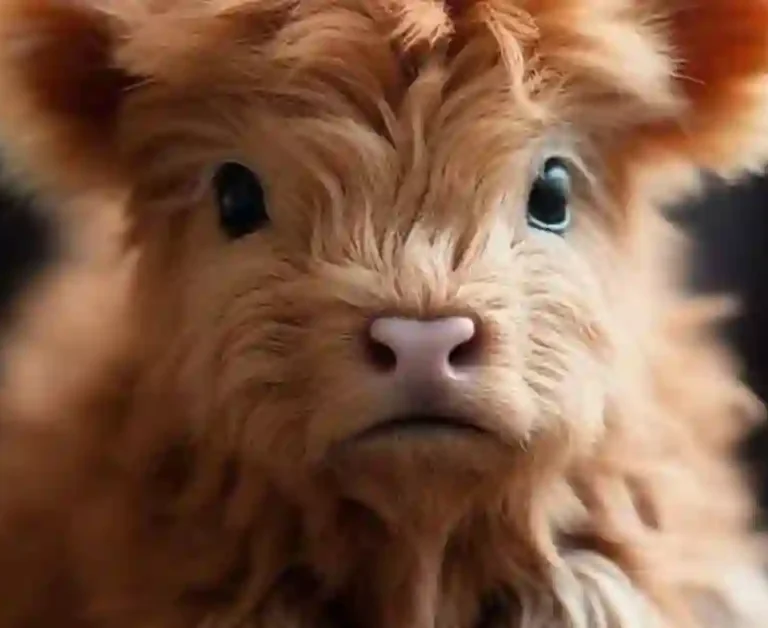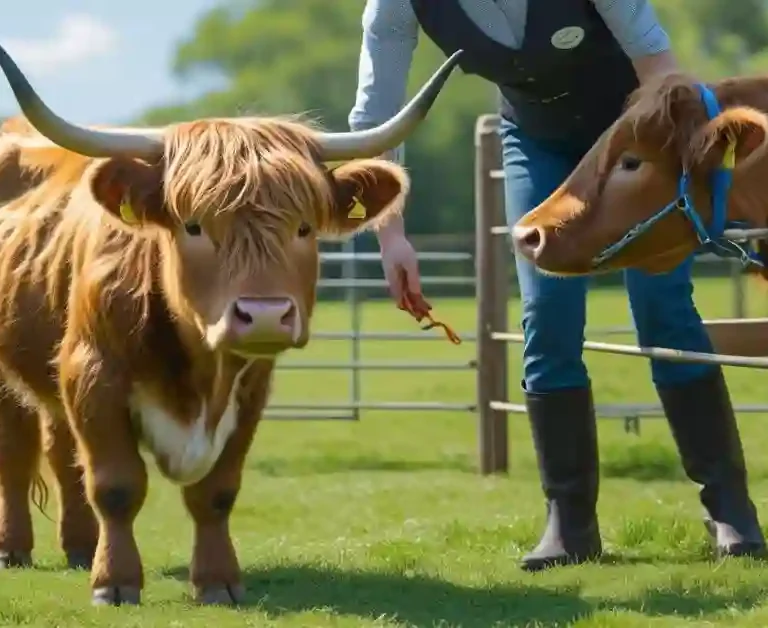Why Choose Mini Cattle Breeds and How to Raise a Mini Cow
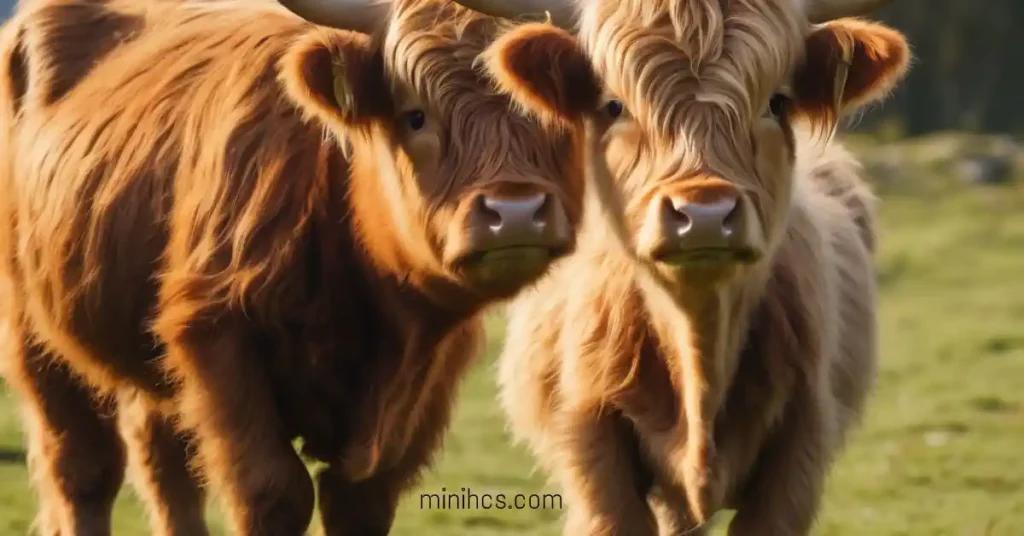
If you’re considering adding cattle to your farm, you may have lost one’s balance in the exciting world of miniature highland cattle. In this article, I’ll explainWhy Choose Mini Cattle Breeds and How to Raise a Mini Cow can be an innovator for your farming experience and How to raise a mini cow.
From their compact size to economic benefits, let’s explore why tiny cattle are gaining popularity among farmers.
Why Raise a Mini Cow?
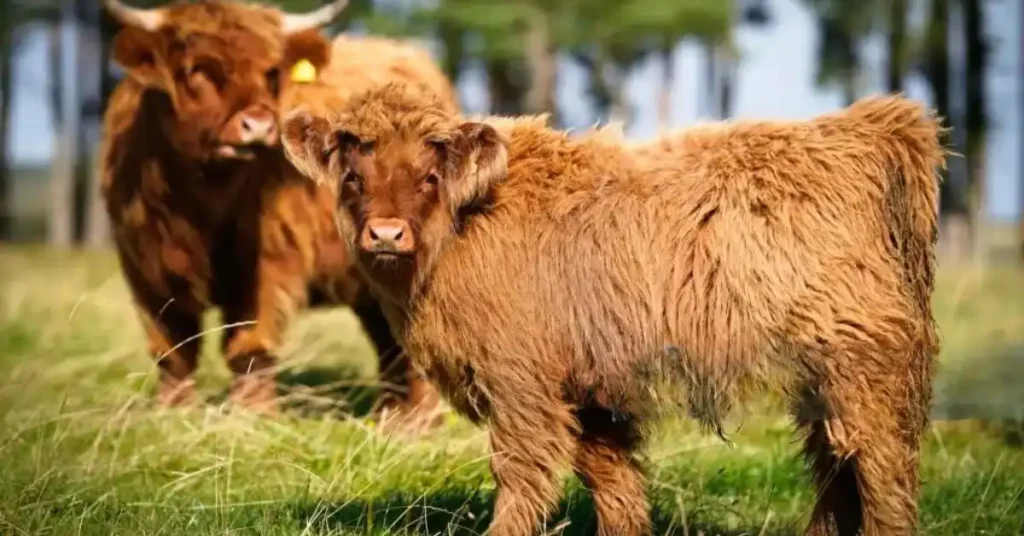
Whether you’re an experienced farmer or just paced into the field, exploring all available options is crucial to raising mini cows on your farm. Breeding mini cows to your farm can be highly advantageous.
They offer a superior profit margin to commercial cows from a business perspective. If your aim is homesteading, regular cows align perfectly with family life, given their docile and gentle nature. Let’s explore why tiny cattle could be the optimal choice for your farm.
What Are Miniature Cows?
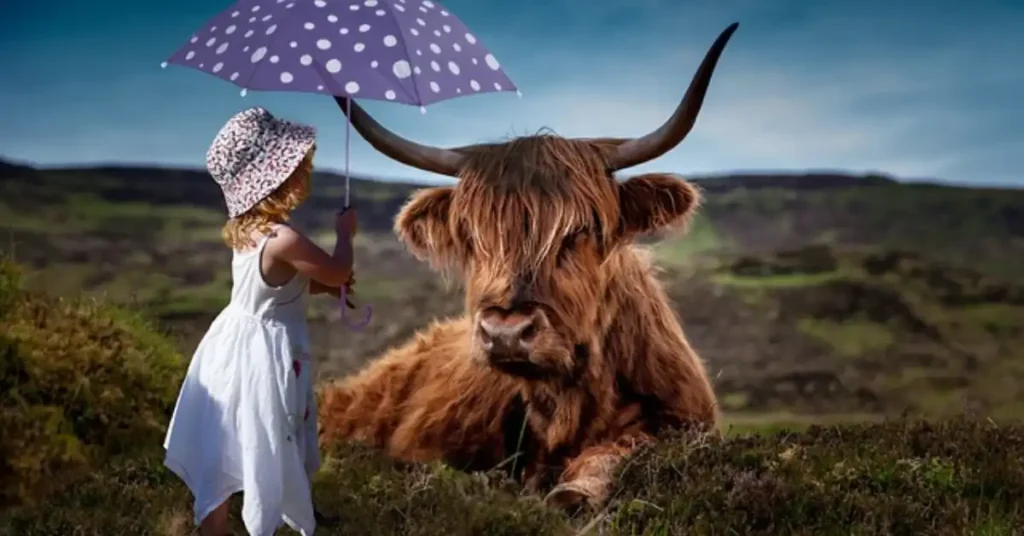
There are many reasons why miniature cattle breeds are. The smallest cows are regular but more petite. While the initial thought might be that this diminutive stature could decrease productivity, the reality is quite the opposite. There are numerous reasons why farmers opt for tiny cows over their normal-sized cow counterparts.
So, what exactly defines tiny cows? Why do we raise a mini cow? Regular cows have been selectively bred to attain a compact size. While this may mean a smaller meat yield, it has several advantages. Caring for mini cows requires less effort, occupy less space, and have significantly lower food and water consumption than their full-size cow counterparts.
In the contemporary farming landscape, a diverse array of small-size cow breeds is highlighted in the following section at Broadway Family Farms. Before researching the specifics of various breeds, let’s survey everything you need about mini cows.
Size of Mini Cows
This variance in the size of cows allows farmers to choose a small cattle breed that fits their specific needs and the available resources on their farm. Let’s look into each category to understand the characteristics and benefits before to raise a mini cow they bring.
| Midsize Miniature Cows | Standard Miniature Cows | Micro-Miniature Cows |
| 42 to 48 inches | 36 to 42 inches | Less than 36 inches |
| It is ideal for those who want to balance compact size and meat yield. | A standard cow is a versatile choice for various farming setups. | Perfect for limited space scenarios or specialized farming needs. |
| Requires less space compared to standard-sized cows. | Offers a good compromise between size and maintenance requirements. | Cattle require less feed and space requirements. |
| Well-suited for farms with moderate land availability. | Fits nicely in both smaller and larger farms. | Significant for hobby farms or smaller farmhouses. |
Choosing the correct classification to raise a mini cow or small cow depends on factors such as available space, desired meat yield, and the specific goals of the farm. The flexibility in size options makes small cattle a practical and customizable choice for various farming scenarios.
Advantages & Disadvantages of Mini Cows?
Understanding the advantages and disadvantages of raising mini cows is crucial for making informed decisions about their appropriateness for a particular farm. Each farmer’s unique goals and limits will determine whether the benefits exceed the challenges in choosing miniature cows over traditional, larger breeds.
How Much Does a Miniature Scottish Highland Cost?
A tiny cow costs approximately between $1,000 and $7,000. While they may seem more expensive than other cows, the advantage is that you can have more on each estate of your land. This can lead to better milk production and more profits in the long run.
Miniature cow breed
Different breeds are found. Only a few of the 26 mini cow breeds are considered the best for starting a mini farm. Whether you prioritize cuteness, utility, or product value, these six breeds stand out.
Raise a mini cow “Dexter breeds.“
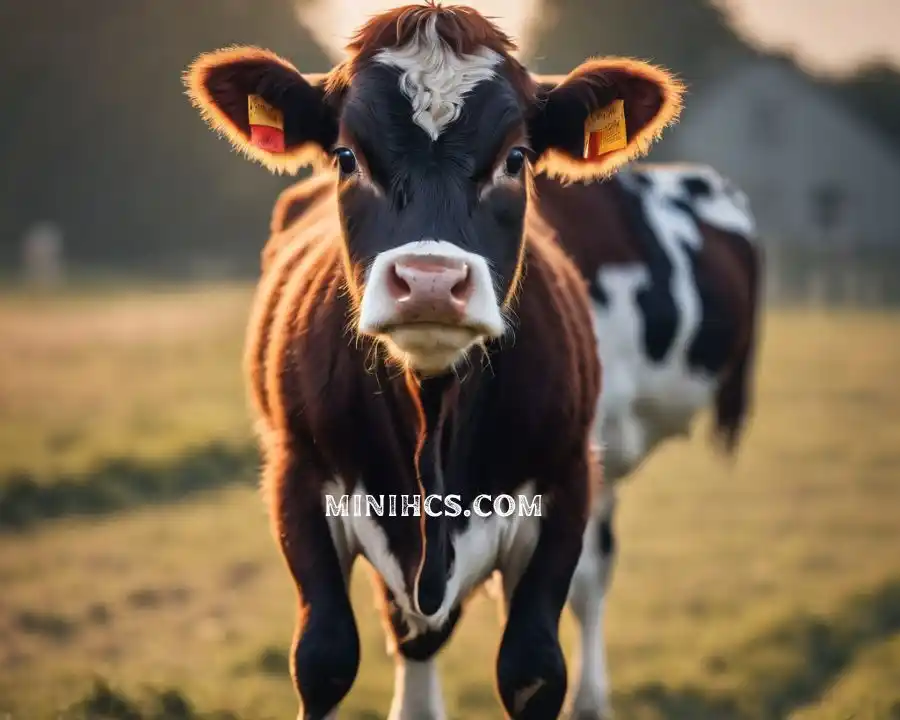
Dexter miniature Cow 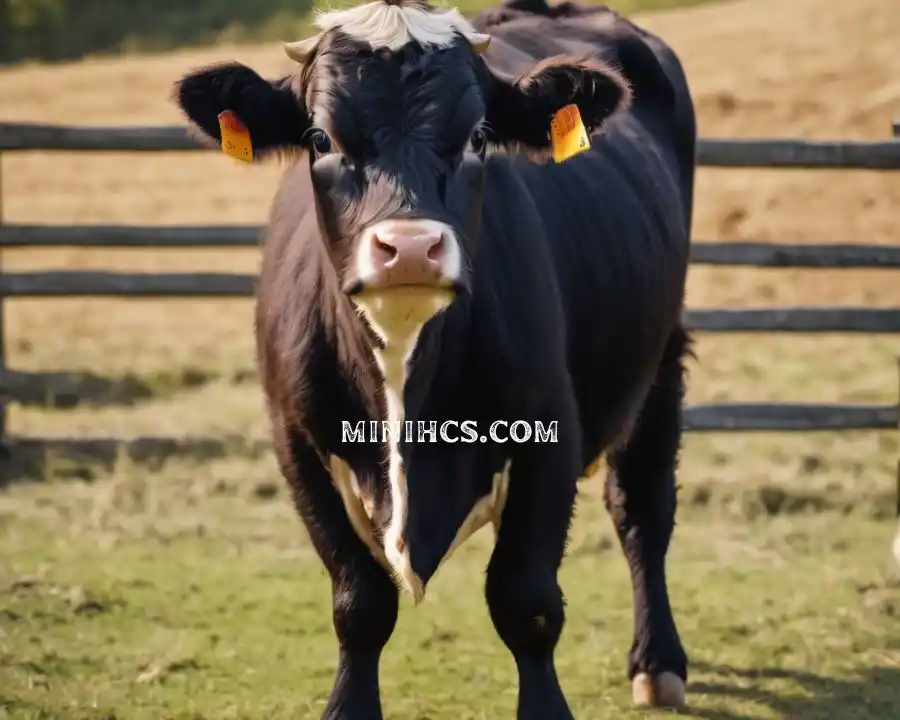
Dexter miniature Cow
Farmers choose Dexter cows because they’re tri-purpose and great for beef, milk, and draft. They’re famous for foraging and eating hay and grass with an excellent meat-to-bone ratio. If you’re after meat, they’re ready for butchering in 18-24 months, dressing out at 50-60% live weight.
Their meat is pricey but valued for being fine-textured and tasty. Dexter miniature cows produce 1 ½ to 3 gallons of 4% butterfat milk daily, comparable to one quart of cream per gallon. If that fits your needs, the Dexter cattle breed is an excellent choice for a mini cow.
To raise a mini cow breed like Miniature Herefords
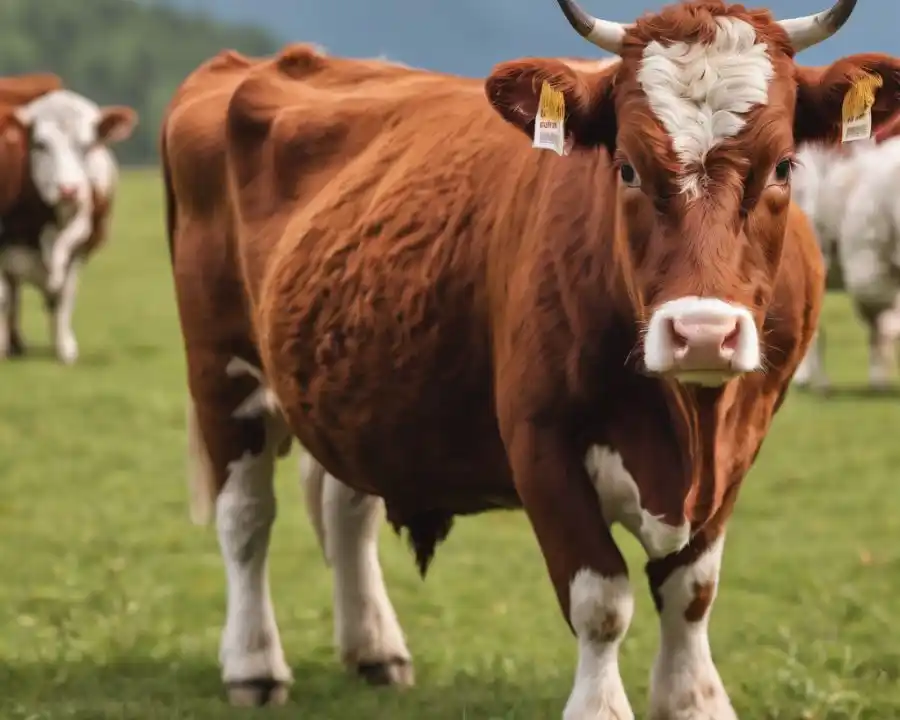
Farmers like Mini Herefords because they grow about 20% faster than other mini breeds.
They’re gentle, great as pets, and can handle any climate while being efficient foragers. Though their meat is less pricey than Dexter’s, it still sells well.
Breed of cattle “Lowlines”
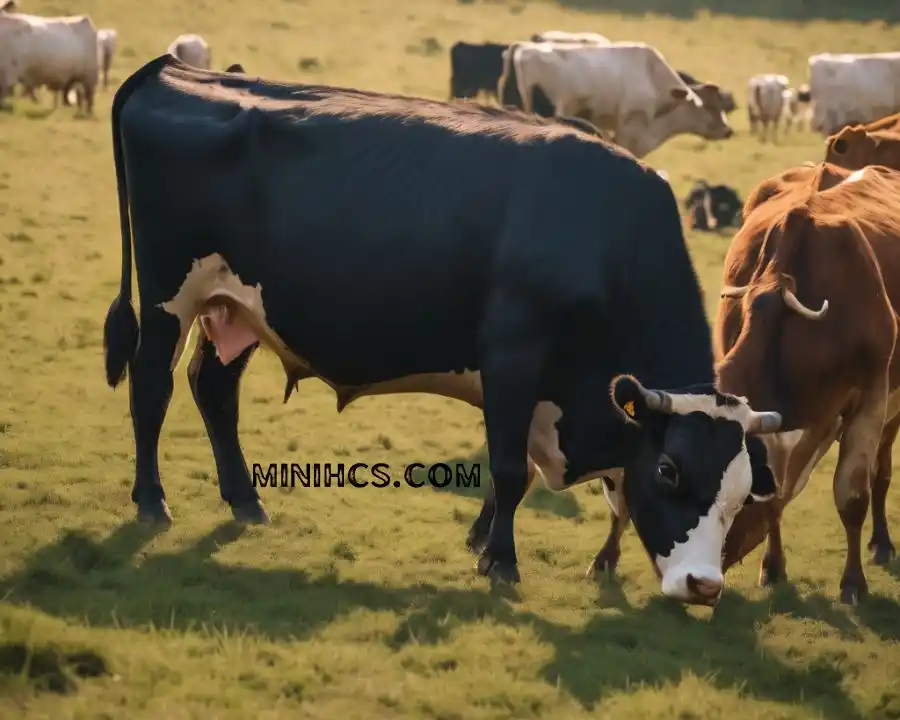
miniature breed lowliness 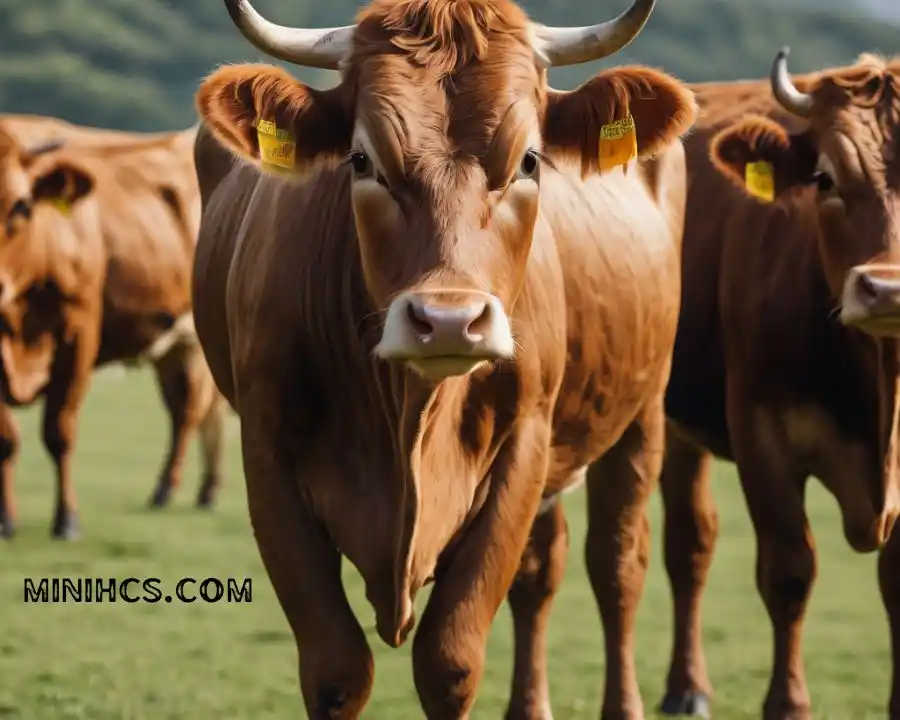
miniature breed lowliness
If you’re familiar with regular Angus cattle, handling Lowlines is a breed. They’re essentially purebred Angus but 30 to 60 per cent smaller.
Lowlines are known for being lovable and remarkably gentle, making them a popular pet choice to raise a mini cow farm.
Miniature cattle breed “Jersey“
Choosing miniature Jerseys over other options has its perks. They produce some of the best high-butterfat milk.
Mini cattle breed Jerseys are cute and lovable and excellent with children.
Their cleanliness is notable, with minimal fur shedding, and with care, they seamlessly fit into households without creating much mess.
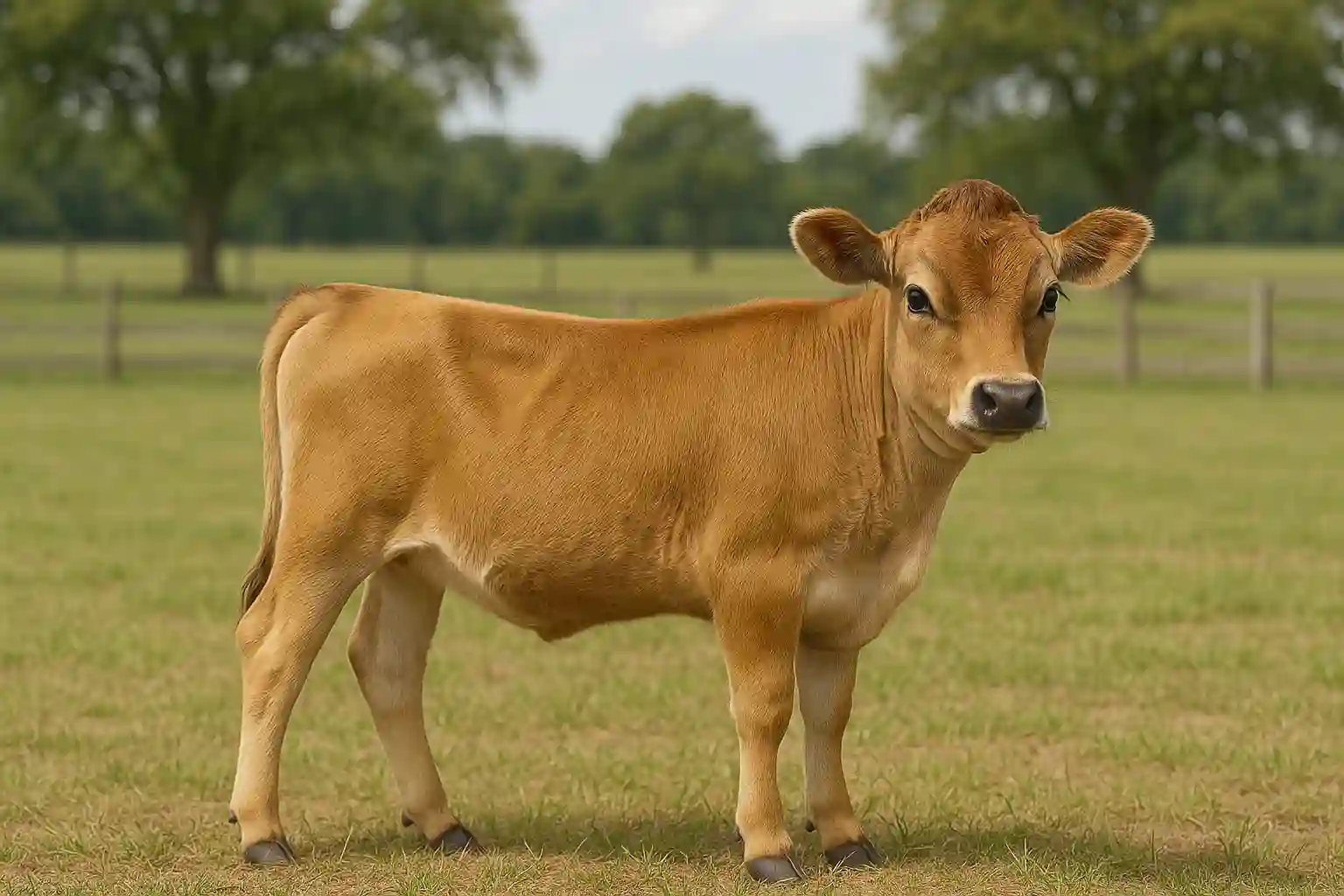
Raise a mini cow breed like Miniature Zebus.
Miniature Zebus, a mini cow breed, closely resembles the robust Brahman. People opt for Zebus mainly because they are the hardest among mini cows. They excel in resisting heat, diseases, and insects. Known for their intelligence and caring nature, miniature highland Zebus also fetch a reasonable price in the market for their quality meat and milk.
Raise a mini cow “Panda breed”
Farmers like Mini Herefords because they grow about 20% faster than other mini breeds. They’re gentle, great as pets, and can handle any climate while being efficient foragers. Though their meat is less pricey than Dexter’s, it still sells well.
Panda cows typically have:
Despite their adorable appearance, ethical concerns surround selective breeding, especially for purely aesthetic reasons.
Things You Will Need to Raise Mini Cow
Before you want to raise a mini cow, being prepared is crucial. Here are some things you should know before buying any cow.
Broadway Family Farms is the right place to raise a mini cow or buy a miniature cow as a baby. Our mini cows quickly adapt to their new homes. We offer various breeds like Lowline Angus, American Aberdeen, Miniature Hereford, American Mini Beltie, and Black Baldi.
Can we raise a mini cow as a pet animal?
Many love having mini cows as pets because they’re adorable and offer several advantages.
These advantages make mini cows lovely pets and precious items to your farm, offering both companionship and potential economic benefits for raise a mini cow.
Conclusion
In conclusion, the decision to raise a mini cow is many-sided, affected by their size, benefits, and economic thought. As you start on this journey, armed with insights into what makes mini cows unique, you’ll be better prepared to make up-to-date decisions that align with your farming goals. Whether you’re an expert farmer or a newcomer, the charm and all about mini cows may be the missing piece on your farm.
